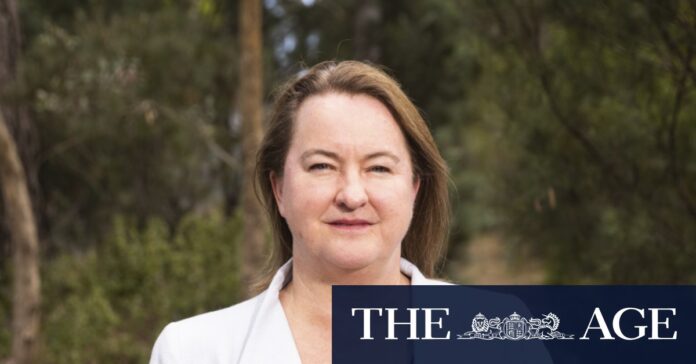[ad_1]
The new laws will not be the panacea to ending gender inequality, but Wooldridge believes it will go a long way in addressing the culture.
Loading
Australia enshrined “equal pay for equal work” more than 50 years ago, but the gender pay gap is a persistent and complex problem. It is the result of social and economic factors that reduce women’s earning capacity over their lifetime.
For example, female-dominated industries, such as childcare, pay less than the more male-dominated industries of construction. Women disproportionately take time off from work to look after children, or are far more likely to be overlooked for promotions.
But even in the female-dominated industries of healthcare and education, men are more likely to be in senior managerial positions, Woodridge says.
“The legislation has a clear message from the government that this is a priority and that gender equality is not just a ‘nice to have’,” Wooldridge says. “What it requires with transparency and accountability around performance is [that] companies have that light shone on their performance, but also an opportunity then to articulate what they’re doing about it.”
Since 2018, companies in the United Kingdom with more than 250 employees have been required to publish their gender pay gaps. A UK Guardian analysis of the latest data showed the median gap remained wide at 9.4 per cent – the same level as in 2017-18.
Meaningful change will take time to achieve, Wooldridge says, but accountability and transparency will challenge companies to take bigger and bolder steps.
“In addition to publishing the number, employers can publish what we’re calling an employer statement,” she says.
“What are they? What’s driving the gap? And what are their plans to address it? While year one is important, year two and year three’s going to be important because we’ll be able to see progress of companies and the difference between what they say and the outcomes that are delivered.”
AI Group chief executive Tim Piper said companies were generally conscious of addressing the gender pay gap and working towards ending it.
Loading
“We are not unsupportive of these moves, but our major concern is the administrative difficulty and the cost that could result because of having to do it,” Piper said.
“Companies must be given the opportunity to invest in it and be a part of it … We need to have as many women involved across the board as possible, so the way to do that is to make sure the gender pay gap is reduced as much as possible.”
The Business Briefing newsletter delivers major stories, exclusive coverage and expert opinion. Sign up to get it every weekday morning.
[ad_2]
Source link



